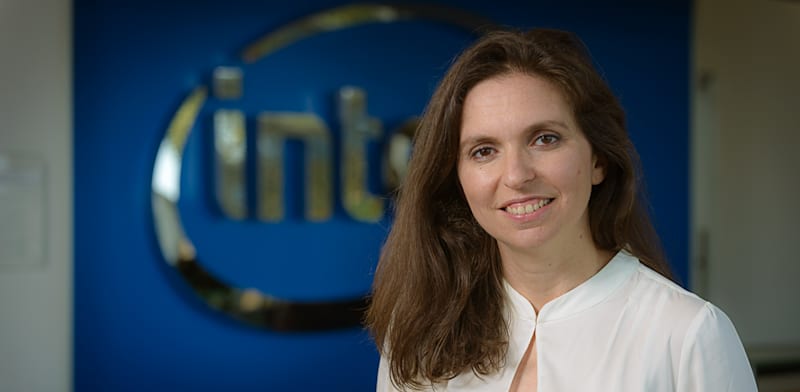
Intel chairman Frank Yeary has been in dramatic talks with senior Trump administration officials as indications are that the chipmaker is likely to be broken up and sold.
According to “The New York Times,” Yeary has met US Secretary of Commerce Howard Lutnick and senior executives from rival TSMC (Taiwan Semiconductor) about selling control of Intel to the Taiwanese chipmaker. “The Wall Street Journal” has reported that Intel could sell its production division to TSMC and its development and design division to US chip developer Broadcom, in a deal brokered by the Trump administration.
If such a deal were to go ahead, there would be the most dramatic ramifications for Israeli industry. Intel currently has about 9,500 employees in Israel, half of them in development centers in Haifa, Petah Tikva and Jerusalem and the remainder in the production plants in Kiryat Gat. “The New York Times” reports that even if the talks with TSMC succeed, it is by no means certain that the Taiwanese company will want to buy Intel’s plants in Ireland and Israel but will focus only on its US activity.
Concern over Israel’s plants being shut down or sold
Senior executives in the chip industry estimate that if Intel’s manufacturing operations are indeed sold to TSMC, there are several options that will dictate the fate of Intel’s two chip factories in Kiryat Gat, the older “Fab 28” and the newer “Fab 38.” If TSMC is not interested in factories outside the US, it will be forced to sell the factory to another company or shut it down.
In such a case, there is only one company capable of buying such a factory in its entirety, and that is Korea’s Samsung, which, as previously reported in “Globes,” had been exploring the possibility of commencing manufacturing operations in Israel before the war. A second option is the sale of Intel’s factories to a company that will be established specifically for the purpose of the sale, which would hold the factories for several years as a transition period. This would allow TSMC to proceed more cautiously, and on the other hand, to acquire Intel’s factories in time and not wait until its financial collapse continues.
In a third scenario, TSMC would adapt the factories according to the needs of its various customers. “TSMC, together with a customer like Broadcom, can benefit from Intel’s factories without having to change the production lines and replace machines,” says Moshe Tanach, CEO and founder of the chip company NeuReality. “Broadcom would be happy to add Intel’s chip, which currently produces $40 billion a year, to their product portfolio. Therefore, it is possible that some Intel factories will be adapted to TSMC’s equipment and technology, and others will remain as they are to continue producing the Intel processors that currently dominate the PC market.”
RELATED ARTICLES
TSMC already operates in Israel through its European branch, which is managed from Amsterdam by senior executives such as EMEA general manager Paul de Bot. TSMC sells manufacturing services in Taiwan to Israeli chip companies, and a possible acquisition of Intel could allow them to manufacture from Israel in the long term, or in factories in the US, and increase the availability of manufacturing for startups that are sometimes forced to wait in line behind giant companies.
Nevertheless, moving Taiwanese management to Kiryat Gat would mean a greater cultural gap – Taiwanese companies do not have development or manufacturing centers in Israel, and the gap between the cultures creates a major management difficulty: While Taiwanese management is hierarchical and requires more obedience, in Israel, horizontal management and challenging the system are valued. Senior executives in the manufacturing system such as Danny Ben-Atar, Dan Doron, and Reda Masarwa have given Israel a prominent position in Intel’s global manufacturing system, and it is uncertain how much of this will be maintained in the Taiwanese era.
“Broadcom would bring a different organizational culture”
If Broadcom ultimately completes the acquisition of the development division, Intel’s development centers in the field of computer and server chips will join Broadcom’s activity in Israel, which revolves mainly around processors for communication switches, server farms and telecom providers. In the past, Broadcom acquired companies in the field of fiber communication chips in Israel, but the market was taken over by China’s Huawei.
Senior executives who know Broadcom well describe its organizational culture as the opposite of Intel’s. One source said, “Hock Tan, CEO of Broadcom, rigorously calculates the average revenue per employee. There is no way that the number does not range between $1.2 and $1.5 million per employee. Therefore, Broadcom will prefer to hire employees from Intel selectively and extract much more from those employees than Intel, which is considered to have an inefficient organizational culture, has extracted. Broadcom, for Intel, is like a five-pound hammer to the head culturally as it manages employees in an extremely efficient manner, very different from how Intel does.”
Published by Globes, Israel business news – en.globes.co.il – on February 17, 2025.
© Copyright of Globes Publisher Itonut (1983) Ltd., 2025.
https://res.cloudinary.com/globes/image/upload/t_800X392/v1709566156/direct/1695488_xdwc0d.jpg
2025-02-17 13:41:39
